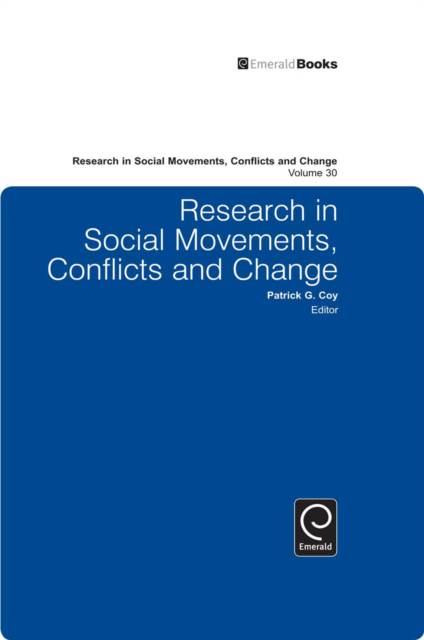
- Afhalen na 1 uur in een winkel met voorraad
- Gratis thuislevering in België vanaf € 30
- Ruim aanbod met 7 miljoen producten
- Afhalen na 1 uur in een winkel met voorraad
- Gratis thuislevering in België vanaf € 30
- Ruim aanbod met 7 miljoen producten
Zoeken
Research in Social Movements, Conflicts and Change
€ 288,45
+ 576 punten
Omschrijving
Research in Social Movements, Conflicts and Change seeks to encourage dialogue and cross-fertilization across a number of related but too disconnected research literatures: social movements, conflict resolution, and social and political change. This volume showcases deeply empirical and often multi-method research by senior and junior scholars alike. Divided into three sections, the first section casts a spotlight on the institution that the RSMCC series exists within and primarily serves: higher education. Papers in the middle section are linked by their investigation of the dynamics of political protest. The volume concludes with three papers linked by their various connections to the theoretical framework of frame analysis in social movements research. Topics discussed include: framing illegal immigration at the U.S.-Mexican Border; movement publications as data; social networks and social protest; and the ethics of social movement research in a post-9/11 political climate. Comparative case analysis and qualitative studies push into new theoretical territories in this illuminating and important research which helps define and advance the multiple fields reflected in the series title.
Specificaties
Betrokkenen
- Uitgeverij:
Inhoud
- Aantal bladzijden:
- 322
- Taal:
- Engels
- Reeks:
- Reeksnummer:
- nr. 30
Eigenschappen
- Productcode (EAN):
- 9780857240361
- Verschijningsdatum:
- 5/03/2010
- Uitvoering:
- Hardcover
- Formaat:
- Genaaid
- Afmetingen:
- 152 mm x 231 mm
- Gewicht:
- 589 g

Alleen bij Standaard Boekhandel
+ 576 punten op je klantenkaart van Standaard Boekhandel
Beoordelingen
We publiceren alleen reviews die voldoen aan de voorwaarden voor reviews. Bekijk onze voorwaarden voor reviews.










